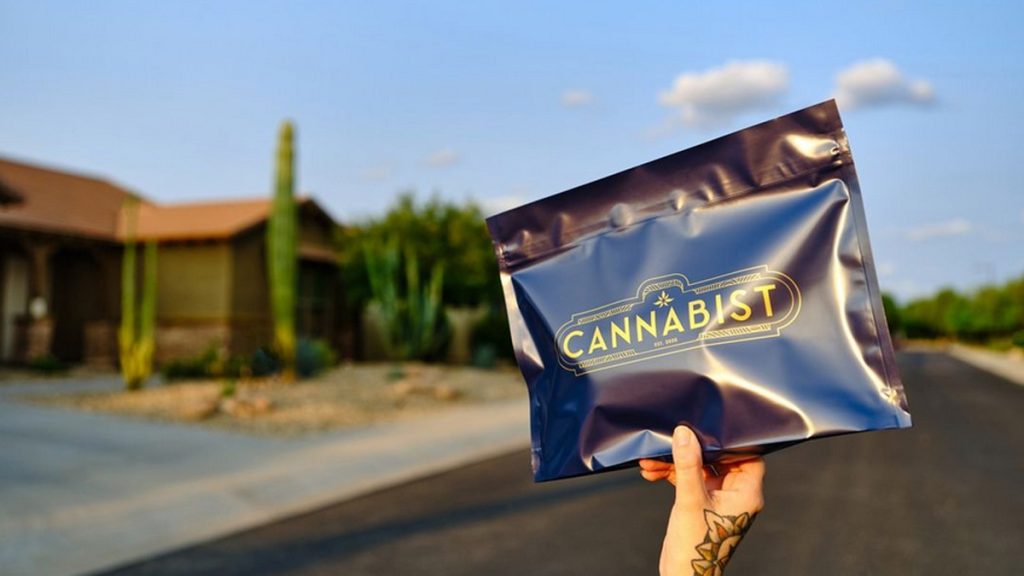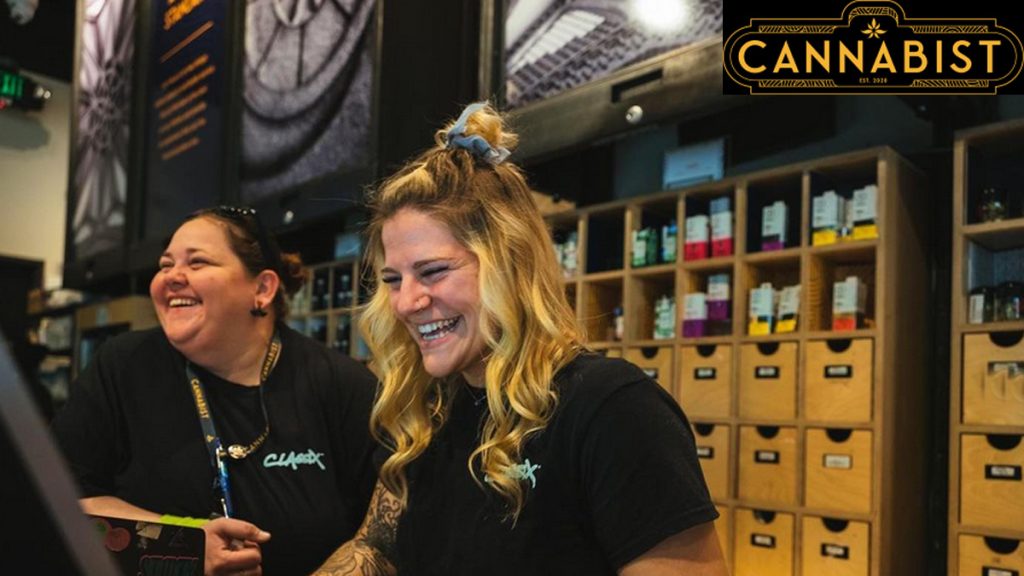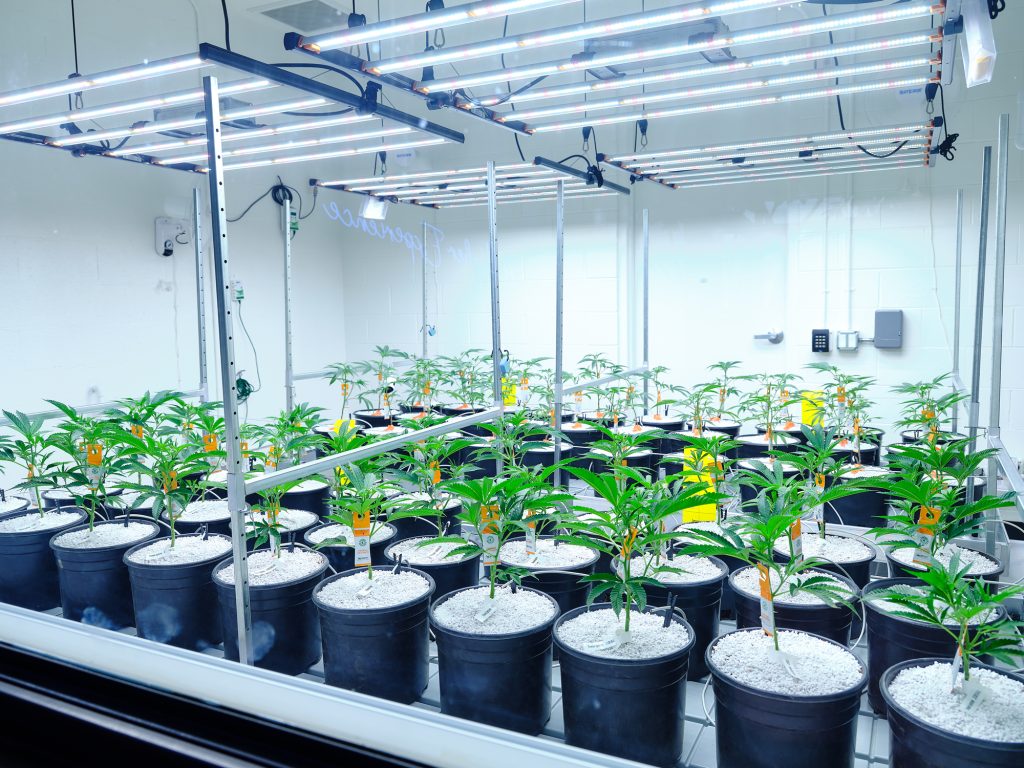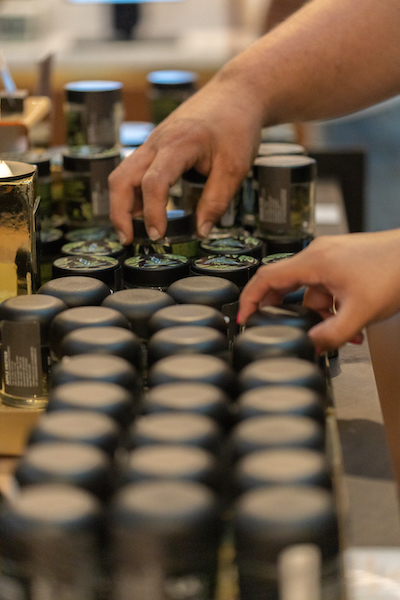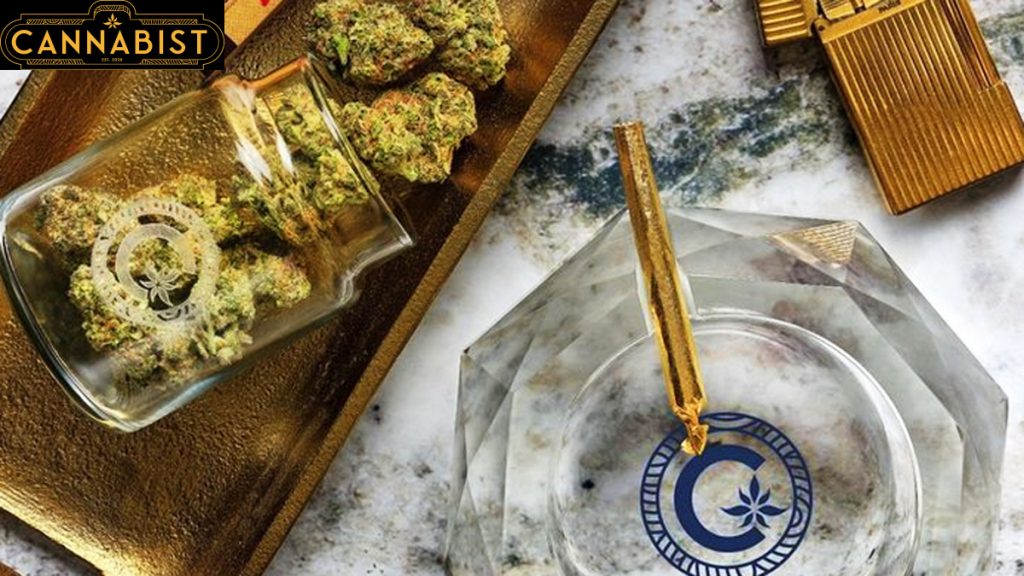Does Weed Help With Insomnia? Relief & Benefits
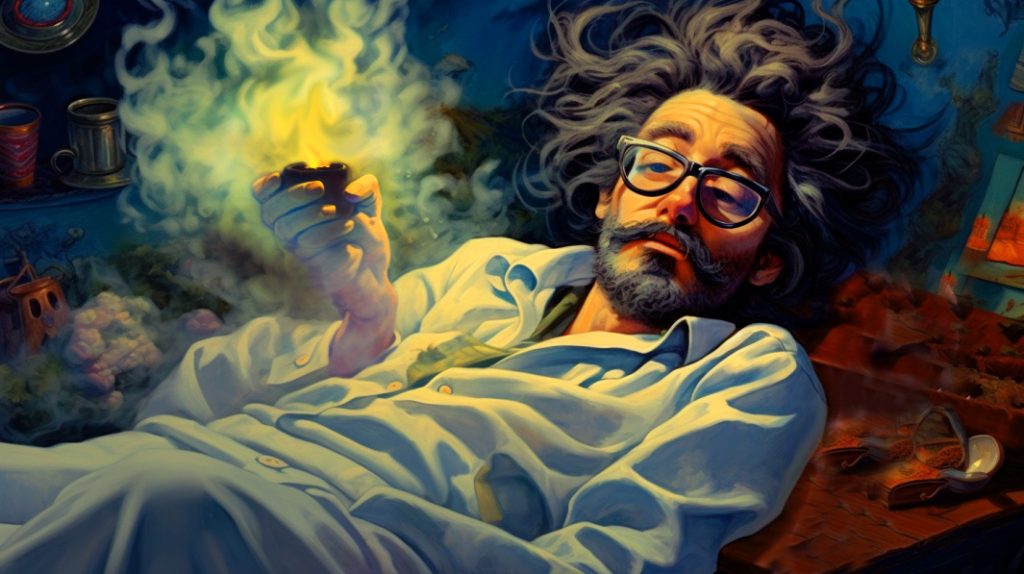
This post is part of our Best Dispensaries in Arizona series, brought to you by Cannabist.
Disclaimer: This article is intended for informational purposes only and should not be considered as medical advice. If you or someone you know is struggling with insomnia or any other health-related issues, please seek advice from a qualified healthcare professional. Individual experiences and needs can vary, and what works for one person might not work for another. Always prioritize the guidance of trained medical professionals over general information. Oh, and you already know this – but never, ever, ever smoke in bed!

Getting a good night’s rest is a unique experience for every adult. Some of us sleep easy—and maybe a little too much. Others have unpredictable schedules that make it tough to stick to a sleeping routine. But for nearly 10% of Americans, getting the recommended 7-8 hours of rest every night is due to insomnia—a common disorder that makes it difficult to fall asleep and stay asleep.
Insomnia can lead to fatigue during the day, as well as poor memory, mood instability, and concentration issues. In chronic cases, ongoing insomnia may also increase one’s risk of heart disease, diabetes, high blood pressure, and other serious health conditions. So, if you ever wonder why people smoke weed – many people do it to avoid these unsavory symptoms of insomnia.
The good news is that, with oversight from a qualified doctor, insomnia can be managed through a variety of treatment options—such as by changing sleep habits, taking prescription medication, or getting mental health care. But what about cannabis? Does weed help with insomnia?
The short answer is yes, cannabis can help combat insomnia when used with care.
For some, consuming marijuana is a good way to promote sleepiness and a night of solid rest. However, these benefits are typically limited to occasional use for short-term cases of insomnia. In other cases, cannabis alone may not be enough to establish good sleep health.
If you’re curious about cannabis for insomnia, here are a few important points to know about this option and how it could impact your body.
Table of Contents
- How Does Weed Help With Insomnia?
- Cannabis And Its Potential Effects on Sleep
- How Cannabis May Influence Sleep Patterns
- What Happens To Your Brain When You Sleep High
- Benefits Of Using Cannabis for Insomnia
- Is Smoking The Only Way To Use Weed To Treat Insomnia?
- Best Strains for Insomnia
- How To Purchase Marijuana
- Key Takeaways On Weed And Insomnia
How Does Weed Help With Insomnia?
Does weed help with insomnia? For many people, it definitely does.
But how exactly does it work?
The reason lies in cannabinoids, primarily THC and CBD, which are compounds found in cannabis products. After smoking or consuming marijuana, cannabinoids bind to receptors in the brain. This action prompts a release of adenosine—a molecule that induces sleepiness and suppresses arousal. For some, this may be what the body needs to feel at ease and drift off into slumber.
Cannabinoids may also interact with the brain in ways that ease other common problems that contribute to insomnia. For instance, they are known to relieve anxiety, restless leg syndrome, PTSD symptoms, and chronic pain—all issues that can make it difficult to fall asleep.
Cannabis And Its Potential Effects on Sleep
Cannabis impacts every person differently, so its effect on sleep can vary. In general, using marijuana introduces THC into the body, which is known to induce a state of sleepiness and help people fall asleep faster.
THC also minimizes arousal during sleep, which means it can help a person stay asleep and remain in a longer state of deep sleep—the most restorative part of the sleep cycle.
While marijuana can serve as a sleep aid, its effects can be excessive for some people. For instance, it may leave people feeling groggy in the morning.
Others may find that THC produces a euphoric “high” feeling or a state of alertness, which may make it more difficult to fall asleep. Sometimes, consuming cannabis with lower THC levels can prevent these effects.
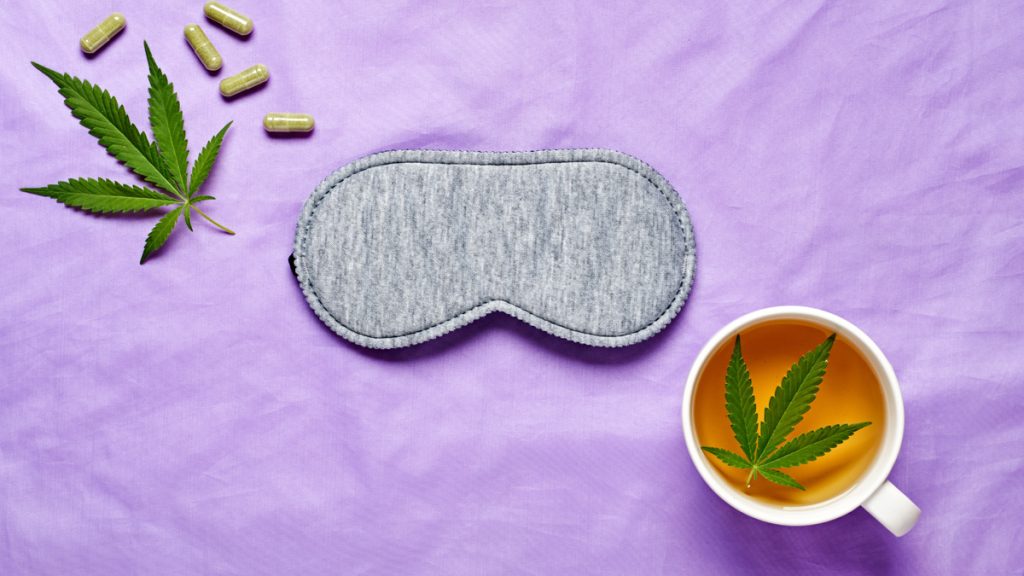
How Cannabis May Influence Sleep Patterns
A healthy night of rest is made up of 4-6 sleep cycles. Each cycle consists of four sleep stages: N1, N2, N3, and REM.
N1 and N2 stages are defined as “light sleep,” while N3 is considered “deep sleep.” During deep sleep, brain activity slows and restorative processes occur within the body.
During REM sleep, brain activity picks back up, and dreaming is more likely. It’s believed that REM sleep helps support memory, learning, and other cognitive functions.
Consuming cannabis can promote tiredness, bringing on the initial stages of light sleep.
It’s also shown to increase the deep sleep stage, which may help a person feel more rejuvenated and restored in the morning.
At the same time, THC can decrease the REM stage. This can be beneficial for people with PTSD, as spending less time in REM can minimize the risk of nightmares—a factor that can make sleep more difficult.
What Happens To Your Brain When You Sleep High
Using marijuana can impact the brain in many ways when you’re asleep.
When THC and other cannabinoids enter the bloodstream they bind to receptors in the brain, and promote the release of adenosine—a chemical that acts as a sedative, making it easier to fall and stay asleep.
These benefits are most noted with short-term cannabis use. Long-term cannabis use, especially in those 25 years or younger, may carry a risk of reducing the brain’s gray matter. Decreased gray matter may contribute to issues with learning, memory, and emotional processes.
Benefits Of Using Cannabis for Insomnia
There are two main direct benefits of marijuana for insomnia. First, it can ease feelings of anxiety and restlessness while providing sedative effects, which may help a person fall asleep faster. Secondly, its impact on sleep cycles reduces the risk that a person will wake up throughout the night—a common symptom of insomnia.
Cannabis may also be a better alternative to prescription sleep aids, as it carries fewer serious side effects. Prescription sleep aids, for example, can increase the risk of dependency, memory loss, erratic behavior, and lasting drowsiness during the day.
Is Smoking The Only Way To Use Weed To Treat Insomnia?
When people smoke cannabis, they tend to feel the effects in as little as 10 minutes. This can be great for individuals who want to get to sleep faster. But that doesn’t mean smoking is the only or best way to use cannabis for insomnia.
If you don’t mind inhaling cannabis but want to avoid the signature smell of pot, you can vape. Vaporizers—like pens—heat up cannabis oil so it can be inhaled and deliver the same effects as smoking. Vaping may produce effects faster than smoking.
Consuming edibles, for instance, is a great way to get the effects of cannabis without inhaling smoke. Keep in mind that this method takes more time for the body to absorb THC and CBD, at around 30 minutes or longer. You can get similar effects by consuming tinctures or beverages that contain cannabis.
If your sleeplessness is related to physical pain, you might also benefit from a topical cannabis or CBD product. These products are typically applied to the painful area, allowing the body to absorb it and provide localized relief.
Best Strains for Insomnia
Dispensaries have endless varieties of cannabis strains, making it difficult to know which is best for sleep. While there is no “tried and true” strain to ease insomnia, it’s generally best to stick to strains that have more THC than CBD for a sedative effect.
Talk to a dispensary staff member for help figuring out your options. With in-depth knowledge of their product selection, budtenders can highlight the best strains for your specific situation.
Is Sativa or Indica Better For Insomnia?
As you shop cannabis strains for insomnia, you’ll likely wonder: Does sativa or indica make you sleepy?
While people react differently to these two main types of cannabis, indica is usually the best bet for insomnia. Indica strains or indica-dominant hybrids tend to make people more relaxed, getting them in a prime state for rest. By contrast, sativa strains are better known for promoting energetic feelings—which may make it more difficult to fall asleep.
How To Purchase Marijuana
Many states, including Arizona, have legalized recreational marijuana for adults over 21. In these states, you only need to bring a valid driver’s license or other identification to a dispensary in order to buy cannabis products.
If you live in the Phoenix area, Cannabist Tempe is a great option for both new and experienced cannabis consumers. With a wide selection of flower, oils, edibles, topicals, and other products, this dispensary in Tempe has plenty of options to target your specific needs—such as alleviating insomnia. If you’re not sure where to start, their friendly team is ready to introduce you to the best options at competitive prices.

Key Takeaways On Weed And Insomnia
- For many, short-term cannabis is an effective way to alleviate insomnia.
- Consuming marijuana introduces THC and other cannabinoids to the body. When these compounds bind to brain receptors, they can trigger a release of chemicals that make it easier to fall asleep and stay asleep.
- Cannabis can influence sleep stages. It can increase “deep sleep,” which may help one wake up feeling more refreshed. It may also decrease REM sleep, which may minimize dreaming or nightmares.
- Smoking marijuana isn’t the only way to use cannabis for insomnia. Vaping, edibles, and topicals are all alternative methods that can work.
- While there are many cannabis strains that can have benefits for insomnia, indica or indica-dominant hybrid strains are typically better for sleep than sativa strains.
Does weed help with insomnia? In many cases, it can. And now that you know what happens to your brain when you sleep high, you might feel more motivated to try this popular sleep aid. If you’re curious about this approach, consult with a healthcare provider to see if it’s a good fit for you. After you’ve got insights from your doctor, pay a visit to Cannabist Tempe to learn about all the latest products that can make bedtime a breeze—and the best deals to help you save.
Media credits: Images of weed helping with insomnia concepts in this article are copyright of LaJolla.com.




